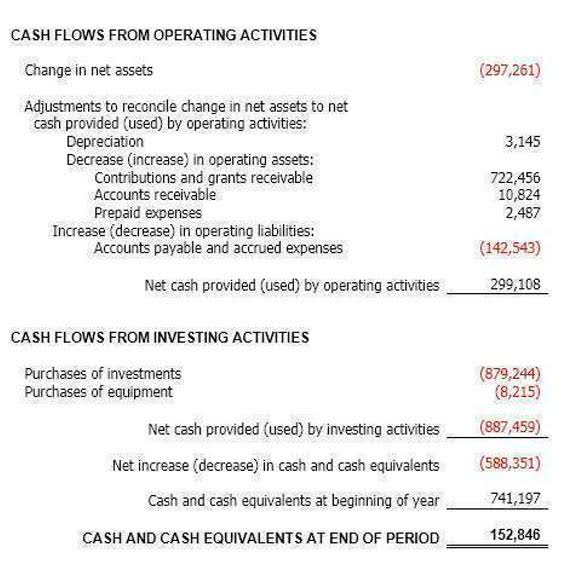
Lastly, keeping up with tax laws and accounting standards changes is important. These changes can significantly impact bookkeeping practices, so staying up-to-date on the latest developments is important. You can do this by reading newsletters or blogs, attending seminars and workshops, or enrolling in courses presented by professional organizations. By tracking financial information over time, bookkeeping can also help businesses to assess their overall performance. This information is used to identify where the business is doing well and areas where there is room for improvement. Bookkeeping can provide evidence of a business’s income and expenditure, which can be helpful in a number of different situations.
Q: Can small businesses handle their bookkeeping needs without hiring a professional bookkeeper?

The double entry bookkeeping method is a way to keep track of all the different financial transactions that a business conducts. The bookkeeping process provides information that is useful in making business decisions. The financial statements are among the essential products of the bookkeeping process. The income statement shows the business’s revenue and expenses for a period of time, and the balance sheet shows the business’s assets, liabilities, and equity at a point in time. The final step in bookkeeping is to produce financial reports, such as income statements, balance sheets, and cash flow statements.

Influence of Bookkeeping on the chart of accounts

The system you choose to use doesn’t need to be complicated and the ledgers should be straightforward, especially if you have just a few or no employees. The most important parts of doing your own bookkeeping are staying organized and keeping track of the details. The Bible warns against dishonesty, fraud, and greed, encouraging believers to conduct business with fairness and truthfulness. Honesty in financial dealings reflects our commitment to God’s righteousness. When choosing a bookkeeping system for your business, it is important to consider the specific needs of your business. Consider a small business bookkeeping bookkeeping system if you run a small company.

Best for Complex Businesses
Keeping a detailed journal, accounting software, and templates can save time and reduce the risk of error. If you are still unsure about correctly recording entries, consider hiring a professional bookkeeper. Bookkeeping can provide the guidance and support needed to ensure accuracy and keep track of your finances. Bookkeeping is the systematic process of recording and organizing all financial transactions within a business. It is fundamental for tracking the flow of money in and out of the company, ensuring that all financial records are accurate, comprehensive, and up-to-date. Bookkeeping is keeping track, classifying, and summarizing financial transactions to provide information that may help you make business decisions.
- It’s key for business owners to know what bookkeepers and accountants do.
- Financial accounts are grouped or categorized based on the nature of accounts or impact on the financial statements.
- By keeping track of financial records, businesses can identify areas of growth and make informed decisions to expand their operations.
- However, they may not provide the same level of commitment and familiarity with your business as an in-house bookkeeper.
- While any competent employee can handle bookkeeping, accounting is typically handled by a licensed professional.
Lender terms and conditions will apply and all products may not be available in all states. Bookkeepers reconcile all balance sheet accounts to ensure that amounts included in each account are valid, and that all revenues and expenses are accounted for. To wrap up, tech has made bookkeeping better, and the future is bright with more advancements. This means business owners need to keep up with new trends and tools to handle their finances well.
Company
Obtaining theProfessional Bookkeeper™ designation signifies recording transactions mastery in the practical application of accounting processes within small to mid-sized businesses. This designation underscores an accountant’s dedication and proficiency in delivering high-quality services to employers or clients. As a partial check that the posting process was done correctly, a working document called an unadjusted trial balance is created.
Small Business Resources
Most businesses use an electronic method for their bookkeeping, whether it’s a simple spreadsheet or more advanced, specialized software. A bookkeeper records and organizes a business’s financial transactions. This ensures the money that comes in and goes out is tracked correctly. Once you have set up your bookkeeping method and chart of accounts, you can start recording financial transactions. This includes recording sales, purchases, expenses, and payments. It is crucial to record transactions accurately and in a timely manner.

Better accounting software is waiting
- Small businesses and individuals typically use this system because it is simple to set up and maintain.
- Bookkeeping can provide the guidance and support needed to ensure accuracy and keep track of your finances.
- Bookkeeping became a recognized profession in the UK and US in the 1800s.
- On the other hand, small business administration bookkeeping systems are typically less complex and easier to use.
- This essential task forms the basis for insightful financial statements, such as balance sheets and income statements.
- Accounting, in a biblical sense, is not just about managing money but also about being responsible stewards of the resources God has entrusted to us.
But before computers became widespread, bookkeeping wasn’t significantly altered. For the past 52 years, Harold Averkamp (CPA, MBA) Accounting for Marketing Agencies hasworked as an accounting supervisor, manager, consultant, university instructor, and innovator in teaching accounting online. He is the sole author of all the materials on AccountingCoach.com.
How much does a bookkeeper cost?
They give a complete view of a business’s money and how it’s doing. They tell us about a company’s profits, money flow, and general financial shape. Reconciling accounts involves comparing financial records to bank statements to ensure that they match. This helps to identify any discrepancies and ensure that all transactions are recorded accurately. Accurate bookkeeping provides businesses with a clear understanding of their financial health. By keeping track of income and expenses, businesses can identify areas of overspending and make informed decisions to improve their financial management.
